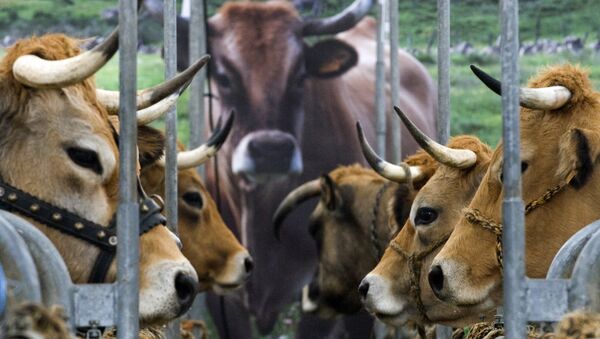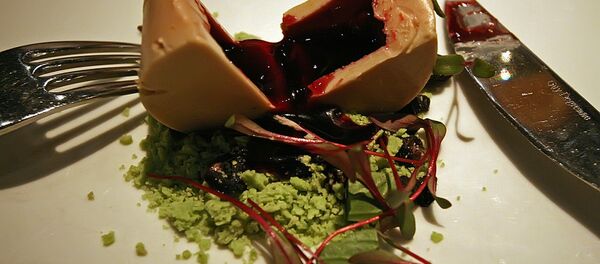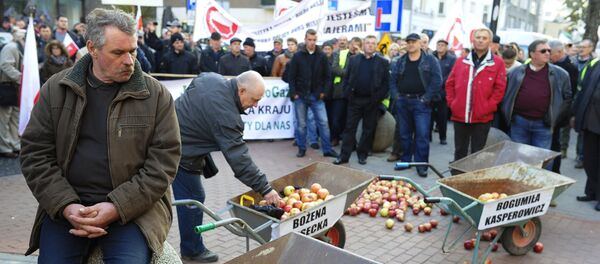Following a trilateral summit in Weimar, France's Stephane Le Foll, Germany's Christian Schmidt and Poland's Krzysztof Jurgiel issued a press release calling on the European Council of Agriculture Ministers to establish a humanitarian aid program "in kind" for countries with a lot of refugees, such as Turkey, Lebanon and Jordan.
Since European farmers are facing a beef surplus, they propose that the meat is redistributed to feed refugees in these countries, which would also provide income for struggling cattle farmers.
Michel Manoury, a cattle farmer in France's Orne region and local chairman of the French Meat and Livestock Association INTERBEV, told Sputnik Francais that the measure is too little too late for impoverished French farmers.
"Things are really bad. We haven't been making money for five years, and nobody is interested (in our problems). The measures proposed for the meat industry by Mr Le Foll are derisory! It's as though we don't exist any more," Manoury said.
France has the largest agricultural area in the EU, and French farmers account for 34.4 percent of EU's bovine herds,followed by Spain (15.2 percent) and the UK (12.8 percent).
France is a net contributor to the EU's Common Agricultural Policy (CAP), a system of agricultural subsidies and other programs aimed at enabling European farmers to produce enough safe food at the right price to feed over 500 million Europeans.
The CAP is one of the EU's most expensive policies, accounting for 39 percent of the EU budget in 2014. In 2009 for example, the CAP allocated 59.8 billion euros in subisidies. Of that figure, 10.3 billion euros was paid to French farmers and other agricultural businesses.
According to Manoury, French livestock farmers have been badly affected by recent reforms to the CAP.
"They have absolutely destroyed us meat producers … they have taken away a whole series of subsidies which allowed us to sustain the price of meat, and nothing has been proposed to replace them so that we can cope with it. Furthermore, the price of meat for stores and slaughterhouses increased, because purchasing power in France fell," Manoury said.
In addition to these policies, anti-Russian sanctions and Russia's counter measures banning EU agricultural imports have also harmed EU farmers, Manoury said.
"We sacrificed our agricultural producers, pork and meat producers were hit… as soon as they introduced the boycott we knew very well that agriculture will pay the biggest price," the farmer complained.





